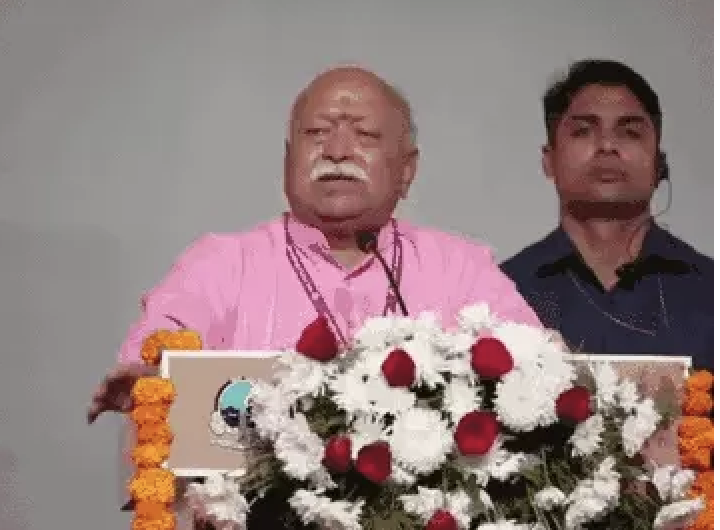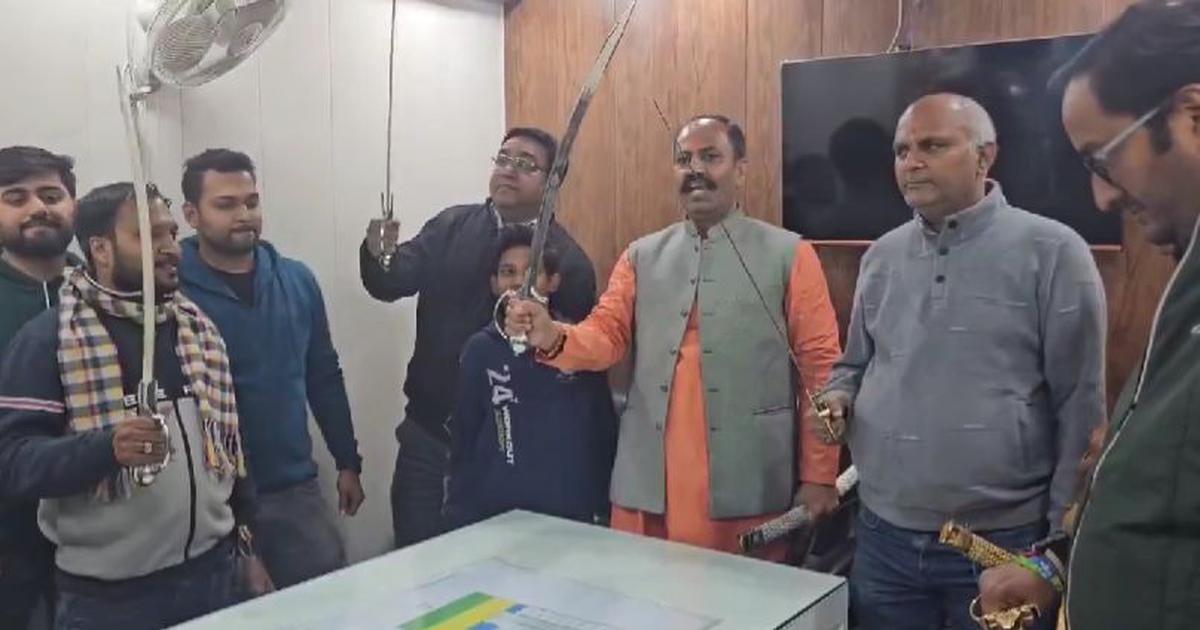
By Tarique Anwar / News Click
New Delhi: As a special court in the national capital enlarged ex-Congress party counsellor Ishrat Jahan on bail on March 14, 2022, in the case concerning the larger conspiracy behind the February 2020 communal riots in the city, many were in disbelief. This was the first occasion when the lower court allowed a bail application in the case (FIR No. 59/2020) wherein the stringent anti-terror law UAPA (Unlawful Activities Prevention Act, 1967) is invoked.
At least 53 people lost their lives and hundred others suffered injuries in the riots that erupted on February 23 evening and continued till February 27 last year in the Trans-Yamuna area.
Four other co-accused (Safoora Zargar, Natasha Narwal, Devangana Kalita, and Asif Iqbal Tanha) who earlier walked out of prison after almost over a year of incarceration without trial got the liberty on orders of the Delhi High Court.
It was being expected that the sessions court decision would pave way for the rest 13 co-accused to walk free. But the 38-page bail order shattered the anticipation. Though Jahan was released on grounds that she was not behind the idea of chakka-jaam (road blockade) and member of the organisations or any “incriminating” WhatsApp group that “played role” in the entire “conspiracy”, the court did not engage with the larger case of the prosecution.
In fact, it took the chargesheet on “face value” to conclude that there was a “premeditated conspiracy” of the “disruptive chakka-jaam” and a “preplanned” protest at 23 different “planned” sites in Delhi to “incite” confrontation and violence.
“There was an intentional blocking of roads to cause inconvenience to the community residing in northeast Delhi and disruptions of essential services. The target was to block roads at mixed population areas and encircle the entire area to stop entry and exit of citizens to create panic,” Additional Sessions Judge Amitabh Rawat said in the bail order.
The order went on to echo the prosecution’s theory that women were used in the protest (against the Citizenship Amendment Act -CAA, the National Register of Citizens-NRC and the proposed National Population Register-NPR in front as shield so that policemen can be attacked by men. The alleged planning and its execution, according to the bail order, comes under the definition of terrorist act.
“The weapons used, manner of attack and the destruction caused show it to be preplanned…. The entire conspiracy is stated to involve various groups and individuals who coordinated with each other in carrying out the confrontational chakka-jaam in the guise of protest. It resulted into violence and riots in northeast Delhi,” said the court, believing that the accusation against the accused are prima facie “true” as per Section 43D of the UAPA.
The section prescribes that bail shall not be granted if the court thinks the prosecution case is ‘prima facie’ true.
The statute endorses a merit-based test of the charges levelled against an accused while deciding bail. And the merits of a case include materials against the accused.
“As per the chargesheet and the statement of witnesses, accused Ishrat Jahan is not the one who created the idea of chakka-jaam. She is also not a member of any of the organisations or incriminating WhatsApp group, which played a role in the entire conspiracy. She is not a member of Muslim Students of JNU (MSJ) or Jamia Coordination Committee (JCC) or any of the four Whatsapp groups created by the JCC or Pinjra Tod of Students of Jamia (SOJ) or Alumni Association of Jamia Millia Islamia (AAJMI) or DPSG (Delhi Protests Support Group — a WhatsApp group). It is also not the case of the prosecution that she attended any meetings called by any of these organisations,” the court stated, allowing her bail application.
The prosecution alleged that Jahan was part of a “larger conspiracy”, which “instigated” the riots. She was allegedly giving “provocative” speeches that the government was against Muslims.
She was allegedly doing “local mobilisation” and was “entrusted” with the task of “systematic organisation” of protests. Her “provocative” speeches, according to the prosecution, created a charged environment.
She also allegedly received a suspicious amount of money (Rs 4 lakh in her account and Rs 1.41 lakh against cash), which was used to fuel the protest at Khureji.
Notably, Safoora Zargar was denied bail on the same ground (prima facie evidence of “conspiracy”) by Patiala House court in 2020. However, the court while granting bail to Jahan, did not rubbish the allegation, stating that the order does not discharge the accused from the case.
She was organising and managing a protest site at Khureji in east Delhi, far away from the area where the horrendous violence took place. There had been violence at the protest venue as well, and a case in this regard had been lodged much earlier than the slapping of the UAPA case. Jahan had already been granted bail in that matter.
Though grant of bail does not mean discharge from the case, yet a strong-worded bail order exposes the prosecution’s theory. Therefore, the investigating agencies challenge it in higher courts to reduce its fallout.
GULFISHA FATIMA, TASLEEM AHMAD DENIED BAIL
The court has already set the tone for orders on rest of the co-accused’s bail applications. And the same happened. Judge Rawat on March 16 rejected the bail pleas of Fatima and Ahmad (both slapped with stringent sections of the anti-terror law and charges under Indian Penal Code) in the same case, alleging a larger “conspiracy” into the northeast Delhi riots.
Judge Rawat read out the order after hearing the accused’s counsel Mehmood Pracha and Special Public Prosecutor Amit Prasad who represented the police.
The court said there are reasonable grounds to believe that the allegation against the duo are “prima facie true”. And therefore, the embargo created by Section 43D of the UAPA for grant of bail, including the embargo contained in Section 437 CrPC.
It rejected Pracha’s arguments that his clients must be granted bail on the ground of parity as their case is similar to that of Devangana Kalita and Natasha Narwal — who have already been set free by the Delhi High Court in September last year.
“In the opinion of this court, by making such a submission in the bail application, by filing the bail order dated 15.06.2020 of the Hon’ble High Court of Delhi and during arguments, and that too so vehemently, not only the counsel negating the order of Hon’ble Supreme Court of India granting stay of the order of bail dated 15.06.2021 of the Division Bench of the Hon’ble High Court of Delhi, but also asking this court to essentially follow the High Court order, the effect of which has been stayed by the Hon’ble Supreme Court of India and thus, to disregard the order of the Hon’ble Apex Court,” said Judge Rawat.
It went on to say that “hence, in view of the order of the Hon’ble Supreme Court of India, it is clear that impugned judgment dated 15.06.2020 was neither to be treated as a precedent nor to be relied upon by any of the parties in any of the proceedings.”
While Fatima was arrested on April 11, 2020 and sent to judicial custody, Ahmed was taken into custody on June 24, 2020 and also sent to judicial custody thereafter.
Both have already been denied statutory bail in the same matter.
The prosecution has alleged that the riots were “meticulously planned” to cause destruction of properties, using petrol bombs, lathis, and stones, etc. Therefore, the case meets the criteria required under 15(1)(a)(i), (ii) and (iii) of the UAPA.
It also argued that the protest was not against the CAA or NRC but intended to embarrass the government and to take such steps that it gets highlighted in the international media.
For the prosecution, the DPSG was a “highly sensitive” WhatsApp group wherein every small message was privately deliberated upon and then passed on to other members. Every decision taken was conscious and well thought over, it argued.
Those who have been chargesheeted in the matter are Jamia Coordination Committee member Safoora Zargar, Jamia reaserch scholar Meeran Haider, United Against Hate member Khalid Saifi, AAJMI President Shifa-ur-Rahman, suspended Aam Aadmi Party councillor Tahir Hussain, activist and former JNU student Umar Khalid, Shadab Ahmad, Tasleem Ahmad, Salim Malik, Mohammad Salim Khan, and Athar Khan.
The last supplementary chargesheet was filed in the case in November last year against JNU students Sharjil Imam and Umar Khalid.
The Delhi Police, in a nutshell, is claiming in a series of chargesheets that the anti-CAA protesters (pre-dominantly Muslims) first started the violence and that the supporters of the law (the right-wing Hindu groups) retaliated. In spite of presence of ample evidence to prove that the violence reportedly began following a provocative speech by Bharatiya Janata Party leader Kapil Mishra during a pro-CAA rally at Maujpur traffic signal, close to Jaffrabad Metro Station, the police seem to be hiding the fact by choosing not to address the flashpoint of the riots.
Even though the investigators allegedly appear to be working as hard as possible to prove the alleged conspiracy, they failed to explain in the chargesheets as to when it was hatched. Further, the inflammatory speech of the BJP leader on February 23 at Maujpur is also conspicuously absent from their much talked about “chronology of events” that has been mapped in most of the chargesheets.
The police have insisted that violence began from Chand Bagh, where incidents were reported on February 24.
This article first appeared on newsclick.in/






